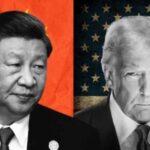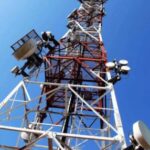The recent 50 percent increase in tariffs for Nigerian telecommunications services is poised to fuel economic growth and attract much-needed investments into the sector, according to the Global System for Mobile Communications Association (GSMA), a leading organization representing mobile network operators worldwide.
During a virtual briefing last Friday, Angela Wamola, Head of GSMA Sub-Saharan Africa, and Caroline Mbugua, Senior Director of Public Policy & Communications for the region, shared insights on the potential impact of the new tariff structure. They emphasized that Nigeria’s bold decision to reform its telecom pricing model could unlock up to two million new jobs and expand the country’s mobile user base by an additional 15 million subscribers by 2028.
A Strategic Move to Strengthen Nigeria’s Digital Economy
The Nigerian Communications Commission (NCC) approved the tariff adjustment in January, marking the first significant price hike in over a decade. This decision comes in response to mounting financial pressures faced by telecom operators, including soaring inflation rates and a weakening naira, which have dramatically increased operational costs.
Wamola described the move as a pivotal step toward ensuring the sustainability of Nigeria’s digital ecosystem. “This decision by the NCC is a significant milestone for Nigeria’s digital future. It creates a conducive environment for sustainable investments, enhances service quality for consumers, and fosters innovation and economic growth,” she noted.
While commending the federal government’s efforts, Wamola stressed that to fully realize the benefits of this reform, additional measures are crucial. These include streamlining the process for obtaining Right of Way (RoW) permits, implementing a comprehensive Critical National Infrastructure (CNI) plan, and reducing the tax burden on the telecom sector.
Economic Projections and the Promise of Digital Transformation
According to GSMA projections, increased digital adoption driven by these reforms could boost Nigeria’s GDP by approximately two percentage points by 2028. This growth would be fueled by digital transformation across key sectors such as agriculture, manufacturing, transport, and government services.

Wamola highlighted the long-term risks of neglecting digitalization, stating, “A lag in digital adoption limits economic productivity and reduces tax revenues that are vital for meeting national socio-economic goals. Over time, this could shrink the telecom sector, leaving Nigerians reliant on outdated technologies with subpar service quality.”
Public Concerns Amid Rising Costs
Despite the optimistic outlook from industry stakeholders, the tariff hike has sparked concerns among Nigerians already grappling with the country’s worst cost-of-living crisis in decades. The Nigeria Labour Congress (NLC) has strongly opposed the increase, announcing plans for a nationwide protest scheduled for February 4.
Addressing these concerns, Mbugua acknowledged the potential for short-term economic strain but emphasized the broader benefits. “While consumers might feel the immediate impact of higher prices, improved network quality and expanded connectivity will create new opportunities and drive long-term economic value,” she explained.
Bridging the Infrastructure Gap and Advancing Toward 5G
Wamola also pointed out the existing infrastructure deficit in Nigeria’s telecom sector. Despite the global shift toward 5G, Nigeria remains heavily reliant on 4G networks, with minimal 5G penetration. “Currently, 5G coverage in Sub-Saharan Africa is at just 1%, and we’re only aiming for 17% coverage by 2030. This is in stark contrast to regions like China, North America, and Europe, where 5G adoption is projected to reach 80%,” she said.
To bridge this gap, Mbugua emphasized that the tariff hike would play a crucial role in accelerating the sector’s growth. “With increased investment, we anticipate the telecom sector’s contribution to Nigeria’s GDP rising from 13.5% to between 20-22% by 2030. This growth will positively impact sectors like healthcare, energy, agriculture, and manufacturing, all of which stand to benefit immensely from improved connectivity,” she added.
Looking Ahead
While the immediate reaction to the tariff hike has been mixed, industry experts believe that the long-term benefits will outweigh the short-term challenges. Enhanced network quality, increased job creation, and a stronger digital economy could position Nigeria as a leader in Africa’s tech landscape.
However, the success of this reform will depend on the government’s ability to implement complementary policies that support infrastructure development, reduce regulatory bottlenecks, and create an environment conducive to both local and foreign investments.


